Learn from leading scientists
Department Interim Chair
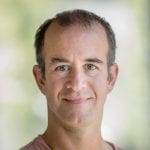 Gage Crump, PhD
Gage Crump, PhD
Professor and Interim Chair, Stem Cell Biology and Regenerative Medicine
Dr. Crump uses zebrafish to understand how the cartilages and bones of our faces are patterned during development. His laboratory is discovering the local tissue-tissue interactions that control skeletal differentiation and morphogenesis in vivo, and also exploring novel ways of regenerating bone in adults.
Center Director
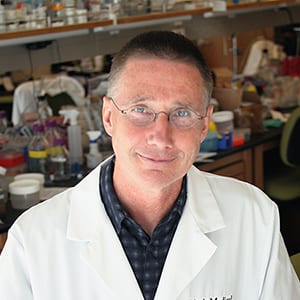 Andrew P. McMahon, PhD, FRS
Andrew P. McMahon, PhD, FRS
W.M. Keck Provost and University Professor of Stem Cell Biology and Regenerative Medicine, and Biological Sciences; Director, Eli and Edythe Broad Center for Regenerative Medicine and Stem Cell Research at USC
A pioneer in developmental and stem cell biology, Dr. McMahon laid cornerstones of the field by identifying the role of key genes that regulate the development of critical organ systems, including the central nervous system, skeleton and kidney. His research led to the foundation of a biotechnology company and development of an anti-skin cancer drug through a licensing agreement with Genentech.
Master’s Program Director
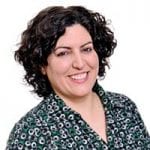 Francesca Mariani, PhD
Francesca Mariani, PhD
Associate Professor, Stem Cell Biology and Regenerative Medicine, Integrative Anatomical Sciences
A leading scientist in the field of stem cell and developmental biology, Professor Mariani and her team focus on the role of stem cells in large-scale cartilage and bone regeneration. She is a sought-after educator who has created independent cutting-edge research opportunities in her lab for students from the high school to PhD levels.
USC Faculty
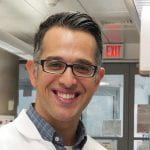 Albert E. Almada, PhD
Albert E. Almada, PhD
Assistant Professor, Orthopaedic Surgery, Stem Cell Biology and Regenerative Medicine
Dr. Almada’s laboratory is investigating one of the greatest mysteries in regenerative biology: how stem cells rebuild functional tissues and organs after traumatic injury. His multidisciplinary team models this biological phenomenon in skeletal muscle, where they discover new pro-regenerative molecules and evaluate their therapeutic potential.
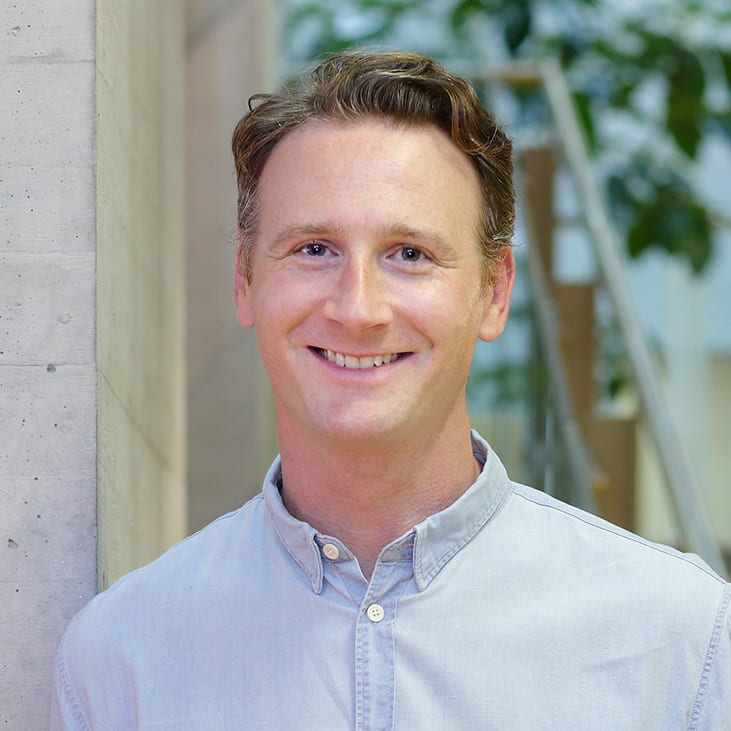 Oliver Bell, PhD
Oliver Bell, PhD
Assistant Professor, Biochemistry and Molecular Medicine, Stem Cell Biology and Regenerative Medicine
Dr. Bell’s lab aims to illuminate the epigenetic mechanisms that establish and maintain stable gene expression states. Ultimately, we aim to unravel the crosstalk between epigenetic regulation and cell plasticity.
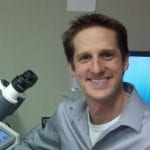 Michael Bonaguidi, PhD
Michael Bonaguidi, PhD
Assistant Professor, Stem Cell Biology and Regenerative Medicine, Gerontology, Biomedical Engineering
Dr. Bonaguidi and his team investigate brain development, adaptation and aging through the lens of individual neural stem cells. His laboratory takes an integrative approach to establishing fundamental principles of tissue plasticity with the purpose of identifying and overcoming the limits of endogenous brain repair.
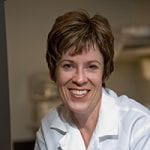 Paula Cannon, PhD
Paula Cannon, PhD
Professor, Molecular Microbiology and Immunology, Pediatrics, Biochemistry and Molecular Biology, Stem Cell Biology and Regenerative Medicine
Dr. Cannon’s research is focused on viruses, stem cells and gene therapy. The viruses that her laboratory studies are HIV-1 and several biodefense related viruses, such as Ebola and Junin, that cause severe viral hemorrhagic fevers.
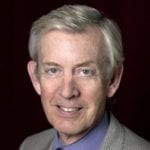 Alex Capron, LLB
Alex Capron, LLB
University Professor; Scott H. Bice Chair in Healthcare Law, Policy and Ethics; Professor of Law and Medicine; Co-director, Pacific Center for Health Policy and Ethics
Mr. Capron is a globally recognized expert in health policy and medical ethics. He recently returned to USC after a four-year leave as director of ethics, trade, human rights and health law at the World Health Organization in Geneva.
Yang Chai, DDS, PhD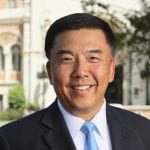
University Professor and George and MaryLou Boone Chair in Craniofacial Molecular Biology; University Professor, Stem Cell Biology and Regenerative Medicine; Director, Center for Craniofacial Molecular Biology; Associate Dean of Research, Ostrow School of Dentistry of USC
Dr. Chai’s laboratory is interested in early craniofacial development and malformations, including the molecular regulation of cranial neural crest cells. His laboratory has developed genetically engineered mouse models, and has made important discoveries about the mesenchymal stem cell (MSC) niche in the craniofacial region and about utilizing MSCs with 3D printed scaffolds for tissue regeneration.
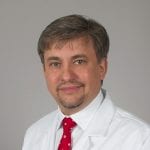 Denis Evseenko, MD, PhD
Denis Evseenko, MD, PhD
J. Harold and Edna LaBriola Chair in Genetic Orthopedic Research; Vice Chair for Research, Orthopaedic Surgery; Professor, Orthopaedic Surgery, Stem Cell Biology and Regenerative Medicine
Dr. Evseenko investigates the potential of human pluripotent stem cells (hPSC) to grow, repair and replace cartilage. By identifying and characterizing the formation of hPSC in early human development, he and his colleagues hope to overcome the significant obstacles inhibiting the ability to generate new tissue for transplantation and illuminate the way for potential new treatments, including alternatives to joint replacement.
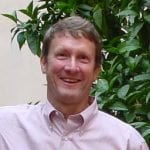 Scott E. Fraser, PhD
Scott E. Fraser, PhD
Provost Professor, Biological Sciences and Biomedical Engineering, Stem Cell Biology and Regenerative Medicine; Director, Science Initiatives
Dr. Fraser has a long-standing interest in the imaging and molecular analysis of intact biological systems, and has been developing new technologies for novel assays. His current research centers on the high-content imaging of embryonic zebrafish and analysis of craniofacial development in avians and mice.
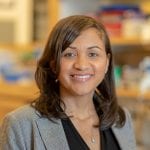 Senta Georgia, PhD
Senta Georgia, PhD
Associate Professor, Pediatrics, Stem Cell Biology and Regenerative Medicine, USC; Principal Investigator, Center for Endocrinology, Diabetes, and Metabolism, Children’s Hospital Los Angeles
Dr. Georgia’s research involves the regeneration of insulin-producing, pancreatic beta cells as a potential therapeutic for patients with type 1 diabetes. Some of her recent work describes how an enzyme DNMT1 is critical to stem cells differentiating into pancreatic beta cells.
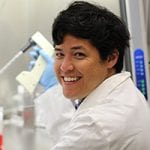 Justin Ichida, PhD
Justin Ichida, PhD
John Douglas French Alzheimer’s Foundation Associate Professor of Stem Cell Biology and Regenerative Medicine; New York Stem Cell Foundation-Robertson Investigator
Dr. Ichida’s research focuses on how genetic and environmental factors contribute to human neurodegenerative disease. His laboratory uses cellular reprogramming and stem cell technology to build patient-specific in vitro models of neurodegenerative disease, enabling the screening of drug-like compounds in search of potential therapeutics.
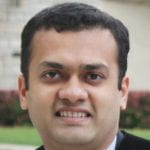 Unmesh Jadhav, PhD
Unmesh Jadhav, PhD
Assistant Professor, Stem Cell Biology and Regenerative Medicine
Dr. Jadhav’s laboratory explores epigenetic control mechanisms regulating cell plasticity. To study this, the lab employs cutting-edge experimental and computational approaches, using the mammalian intestine as a model system. The resulting insights will aid in organ regeneration and replacement therapies.
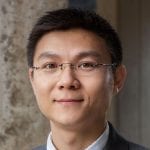 Zhongwei Li, PhD
Zhongwei Li, PhD
Assistant Professor, Medicine, Stem Cell Biology and Regenerative Medicine
Dr. Li and his team aim to bridge basic studies of kidney organogenesis and translational applications of stem/progenitor cell-based kidney regeneration and disease modeling, with the long-term goal of rebuilding the kidney. They achieve this by combining state-of-the-art stem cell technologies and engineering methodologies.
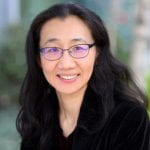 Ching Ling (Ellen) Lien, PhD
Ching Ling (Ellen) Lien, PhD
Associate Professor, Surgery, Biochemistry and Molecular Medicine, Stem Cell Biology and Regenerative Medicine; Principal Investigator, Children’s Hospital Los Angeles
The goal of Dr. Lien’s lab is to define the molecular and cellular mechanisms of heart regeneration in zebrafish with the long-term goal of enhancing regenerative capacity and replacing defective tissues in diseased human hearts.
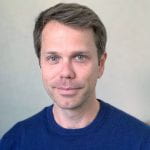 Nils Lindström, PhD
Nils Lindström, PhD
Assistant Professor, Stem Cell Biology and Regenerative Medicine
Dr. Lindstrom and his lab study the molecular mechanisms that control how progenitors that exist during development differentiate into the broad range of cell types that underpin adult organ function. The lab integrates single-cell omic approaches with new microscopy and computational tools to understand how genetic changes cause abnormal differentiation in the kidney and model these genetic changes in the renal stem-cell derived organoid with the aim of identifying new treatments for kidney disease.
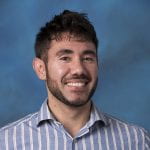 Thomas Lozito, PhD
Thomas Lozito, PhD
Assistant Professor, Orthopaedic Surgery, Stem Cell Biology and Regenerative Medicine
Dr. Lozito’s research compares skeletal regeneration in lizards and salamanders. The ultimate goal is to apply this knowledge to improve regeneration in humans.
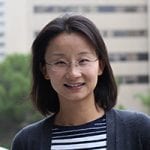 Rong Lu, PhD
Rong Lu, PhD
Associate Professor, Stem Cell Biology and Regenerative Medicine, Biomedical Engineering, Medicine, Geronology; Leukemia & Lymphoma Society Scholar
Dr. Lu studies stem cell coordination, regulation and malfunction from a single cell perspective, using mouse hematopoietic stem cells as a model system. Research in her laboratory is focused on understanding the differences between individual stem cells and how they are coordinated in sustaining the common blood supply.
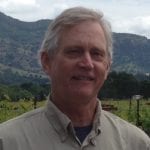 Robert E. Maxson, PhD
Robert E. Maxson, PhD
Professor, Biochemistry and Molecular Biology, Stem Cell Biology and Regenerative Medicine
The overall interest of Dr. Maxson’s laboratory is the molecular genetic basis of embryonic pattern formation. They focus on processes that regulate the development of the calvaria, the flat bones that compose the top of the skull.
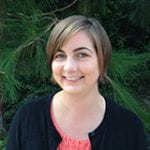 Megan McCain, PhD
Megan McCain, PhD
Associate Professor and Chonette Early Career Chair, Biomedical Engineering, Stem Cell Biology and Regenerative Medicine
Dr. McCain’s group leverages techniques in tissue engineering to understand mechanisms of development and disease on the cell and tissue level. They develop and utilize tools that can probe structure-function relationships in engineered cells and tissues across multiple spatial and temporal scales.
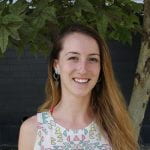 Louise Menendez, PhD
Louise Menendez, PhD
Assistant Professor, Stem Cell Biology and Regenerative Medicine
Dr. Menendez is involved in teaching efforts related to developmental and stem cell biology for undergraduate and master’s students.
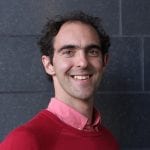 Leonardo Morsut, PhD
Leonardo Morsut, PhD
Assistant Professor, Stem Cell Biology and Regenerative Medicine, Biomedical Engineering
Dr. Morsut is developing synthetic biology approaches for mammalian multicellular systems. His laboratory is engineering synthetic cell-cell communication pathways to advance tissue engineering applications as well as the fundamental understanding of multicellular dynamics.
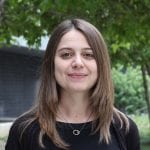 Giorgia Quadrato, PhD
Giorgia Quadrato, PhD
Assistant Professor, Stem Cell Biology and Regenerative Medicine
Dr. Quadrato’s laboratory focuses on understanding the cellular and molecular basis of human brain development and disease. By combining the use of emerging models of the human brain with single cell omics approaches, the laboratory is aiming to identify cell type specific disease mechanisms, and above all, new treatments for human neurodevelopmental disorders.
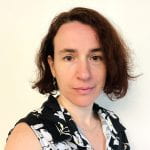 Yulia Shwartz, PhD
Yulia Shwartz, PhD
Assistant Professor, Stem Cell Biology and Regenerative Medicine
Dr. Shwartz’s laboratory studies mechanisms that control stem cell behavior in homeostasis, stress and aging, using mouse skin as a model.
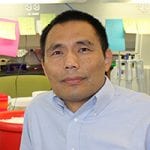 Qi-Long Ying, MD, PhD
Qi-Long Ying, MD, PhD
Professor, Stem Cell Biology and Regenerative Medicine, Cell and Neurobiology
Dr. Ying’s research focuses on understanding how embryonic stem cells decide whether to self-renew or to differentiate. Dr. Ying’s research focuses on understanding how embryonic stem cells decide whether to self-renew or to differentiate.
Selected Visiting Faculty
Winn Hong
Alfred Mann Institute
Linda Marbán, PhD
Capricor Therapeutics
Thomas Novak, PhD
Cellular Dynamics
John A. Zaia, MD
City of Hope
